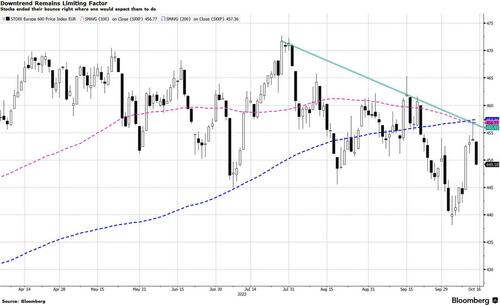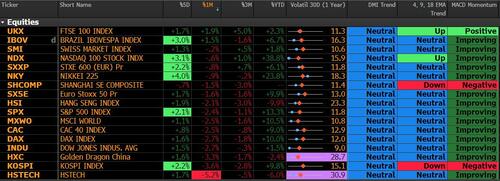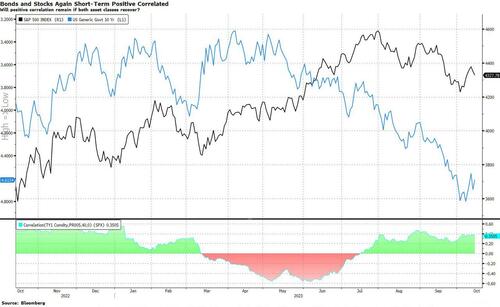By Jan-Patrick Barnert, Bloomberg Markets Live reporter and strategist
With uncertainty all around, no clear investor positioning and earnings season just kicking off, predicting the near-term direction of the stock market is turning into a coin flip.
Accurately calling the market is never easy, but there’s often a narrative pointing in one direction or the other. Right now, however, there’s too many moving parts — including the conflict in the Middle East, bond market volatility and the trajectory of inflation and interest rates. Investor caution ahead of a difficult-to-predict company results season is also muddying the picture.
Recent market moves have reflected the lack of conviction among traders. A 3% upswing for European stocks from their recent low faded on Friday after disappointing US inflation data added to escalating geopolitical tensions, just at a point when more positive news was needed to tip the balance in favor of a rally.
Last week’s hotter-than-expected US data “did underscore our skepticism for the US Federal Reserve’s soft-landing economic forecasts,” said Pimco US economist Tiffany Wilding. “We’ve been skeptical that the Fed would actually deliver the hike projected in the second half of 2023 by the majority of Fed officials, but at this point we are leaning toward them getting it in despite the recent tightening in financial conditions.” However, she says it remains a “close call.”
It all leaves the bigger picture for stocks in a tricky spot. As the chart shows, recent upward moves haven’t been able to breach the current downtrend, suggesting that even when momentum has improved, it hasn’t been strong enough to push the market higher. Other assets such as the US dollar and bonds are also at key thresholds.
With major benchmarks stuck in short-term downtrends, a broad range of buyers may be needed to convincingly change the narrative. But fundamental investors are likely to be cautious ahead of the earnings season, which in turn has to provide evidence that the majority of EPS compression is indeed behind us.
That’s leaving a huge part of the price action to those with more systematic approaches. Those players might be getting near a point where they start to buy back and short cover their positions after the de-risking seen over the past few months. And while that has the potential to create some form of what trading desks call synthetic gamma — pushing markets higher in a kind of feedback loop — it isn’t clear if that would be enough for a sustained rally.
That sort of positioning is a reason that stocks and treasuries could both squeeze higher in a 4Q Santa Rally, according to Nomura strategist Charlie McElligott. But the danger of an “everything higher” scenario is that it may get crowded “and could thus easily go wrong-way with weak hands moving into the trade who may tap at the first signs of reversal.”





